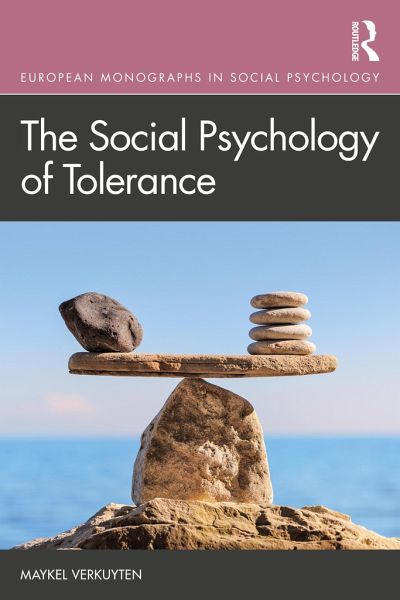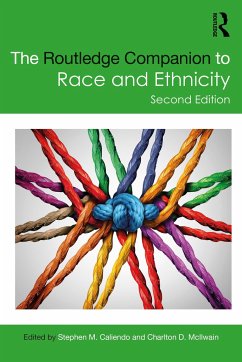
The Social Psychology of Tolerance
Versandkostenfrei!
Versandfertig in 6-10 Tagen
43,99 €
inkl. MwSt.
Weitere Ausgaben:

PAYBACK Punkte
22 °P sammeln!
This highly topical book is the first of its kind to provide a comprehensive theoretical and empirical discussion of the social psychology of tolerance, exploring the importance and drawbacks of a focus on tolerance and discussing how tolerance can be stimulated in a range of contexts.The importance of tolerance for a diverse, equal, and open society is increasingly recognized by social and behavioural scientists. When people are aware of salient differences and disagree about the value of various viewpoints and ways of life, the question of tolerance arises. Not only in relation to religious,...
This highly topical book is the first of its kind to provide a comprehensive theoretical and empirical discussion of the social psychology of tolerance, exploring the importance and drawbacks of a focus on tolerance and discussing how tolerance can be stimulated in a range of contexts.
The importance of tolerance for a diverse, equal, and open society is increasingly recognized by social and behavioural scientists. When people are aware of salient differences and disagree about the value of various viewpoints and ways of life, the question of tolerance arises. Not only in relation to religious, cultural, ideological, and viewpoint differences but also concerning everyday things such as annoying habits of one's partner, the views and behaviour of one's children, disagreements at work, and neighbourhood hassles. Verkuyten uses concrete examples to discuss the various reasons for why tolerance is vital for peaceful communities, especially in our increasingly diverse and polarized world.
Providing a thorough examination of the social psychology of tolerance, this is a valuable text not only to social psychologists but to a range of students and scholars in the social and behavioural sciences more broadly.
The importance of tolerance for a diverse, equal, and open society is increasingly recognized by social and behavioural scientists. When people are aware of salient differences and disagree about the value of various viewpoints and ways of life, the question of tolerance arises. Not only in relation to religious, cultural, ideological, and viewpoint differences but also concerning everyday things such as annoying habits of one's partner, the views and behaviour of one's children, disagreements at work, and neighbourhood hassles. Verkuyten uses concrete examples to discuss the various reasons for why tolerance is vital for peaceful communities, especially in our increasingly diverse and polarized world.
Providing a thorough examination of the social psychology of tolerance, this is a valuable text not only to social psychologists but to a range of students and scholars in the social and behavioural sciences more broadly.














